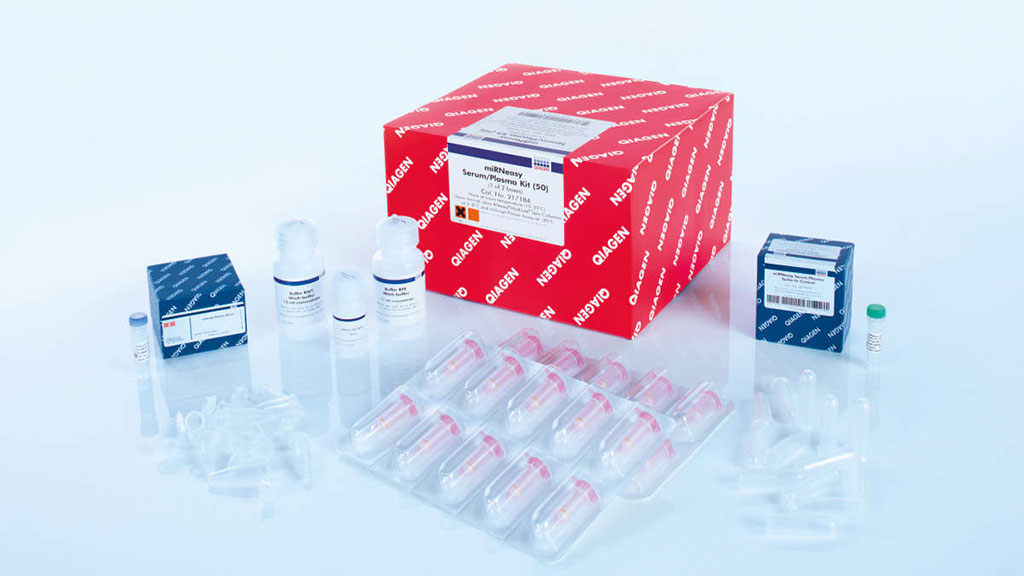Molecular Blood Test Kit Detects Gastric Cancer Early
By LabMedica International staff writers
Posted on 09 Nov 2020
Gastric cancer (GC) is the fifth most common cancer and the third-leading cause of cancer deaths worldwide. GC mortality is high due to late presentation. In most countries, mass screening is neither feasible nor cost-effective because such screening methods are costly and invasive, with poor compliance.Posted on 09 Nov 2020
MicroRNAs (miRNAs or miRs) are small non-coding RNAs that regulate gene expression post-transcriptionally. Aberrant expression of miRNAs has been implicated in the pathogenesis of many diseases, including cancer. Cell-free miRNAs have been shown to circulate stably in serum and plasma, and dysregulation of their expressions correlate with cancer onset and progression, making them attractive biomarker candidates.

Image: The Qiagen miRNeasy serum/plasma miRNA isolation kit (Photo courtesy of Qiagen).
Gastroenterologists and their colleagues associated with the National University of Singapore (Singapore) conducted a three-phase, multicenter study comprising 5,248 subjects from Singapore and Korea. The case–control cohort included 472 Singaporean Chinese subjects, including 236 cancer and 236 matched control subjects.
A clinical assay was developed and validated in a prospective cohort of 4,566 symptomatic subjects who underwent endoscopy. Assay performance was confirmed with histological diagnosis and compared with Helicobacter pylori (HP) serology, serum pepsinogens (PGs), ‘ABC’ method, carcinoembryonic antigen (CEA) and cancer antigen 19–9 (CA19-9). The absolute expression (copy numbers) of 578 candidate miRNAs were quantified in each patient and control biospecimen using miRNA-specific RT-qPCR assays (MiRXES, JTC MedTech Hub, Singapore) via a highly controlled workflow. Total RNA from 200 µL of patient and control serum specimen was isolated using miRNeasy serum/plasma miRNA isolation kit (Qiagen, Hilden, Germany).
The team developed a clinical assay for detection of gastric cancer based on a 12-miRNA biomarker panel. The 12-miRNA panel had area under the curve (AUC) = 0.93 and AUC = 0.92 in the discovery and verification cohorts, respectively. In the prospective study, overall sensitivity was 87.0% at specificity of 68.4%. AUC was 0.848, higher than HP serology (0.635), PG 1/2 ratio (0.641), PG index (0.576), ABC method (0.647), CEA (0.576) and CA19-9 (0.595). The number needed to screen is 489 annually. It is cost-effective for mass screening relative to current practice.
The authors concluded that they had developed and validated a serum miRNA biomarker panel assay as a risk assessment tool for detecting GC. This assay is a useful adjunct in the armamentarium for cancer screening and has the potential to be a cost-effective mass screening tool for GC. The study was first published on October 7, 2020 in the BMJ journal Gut.













